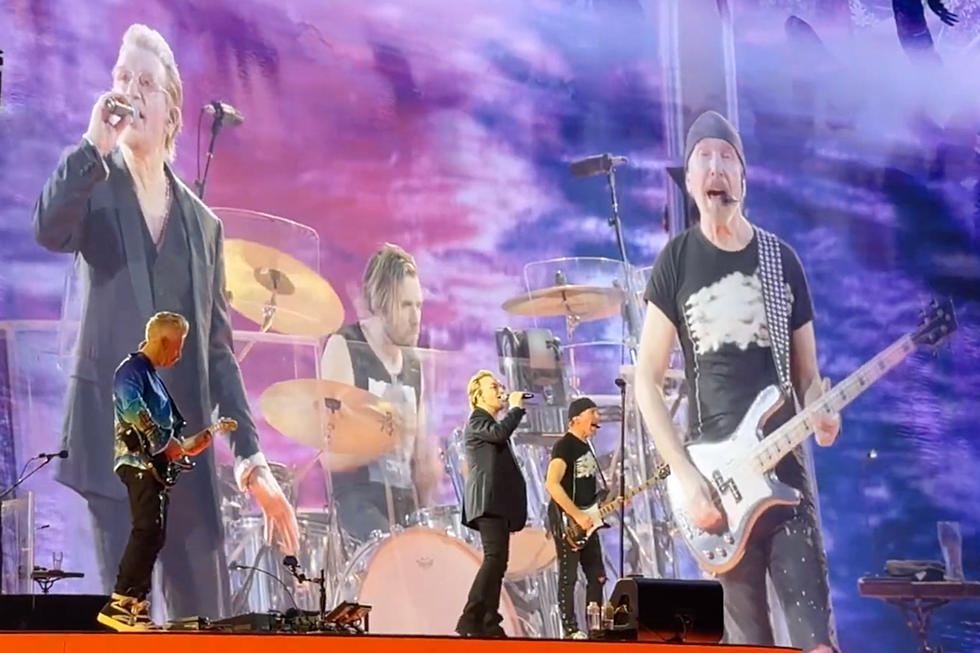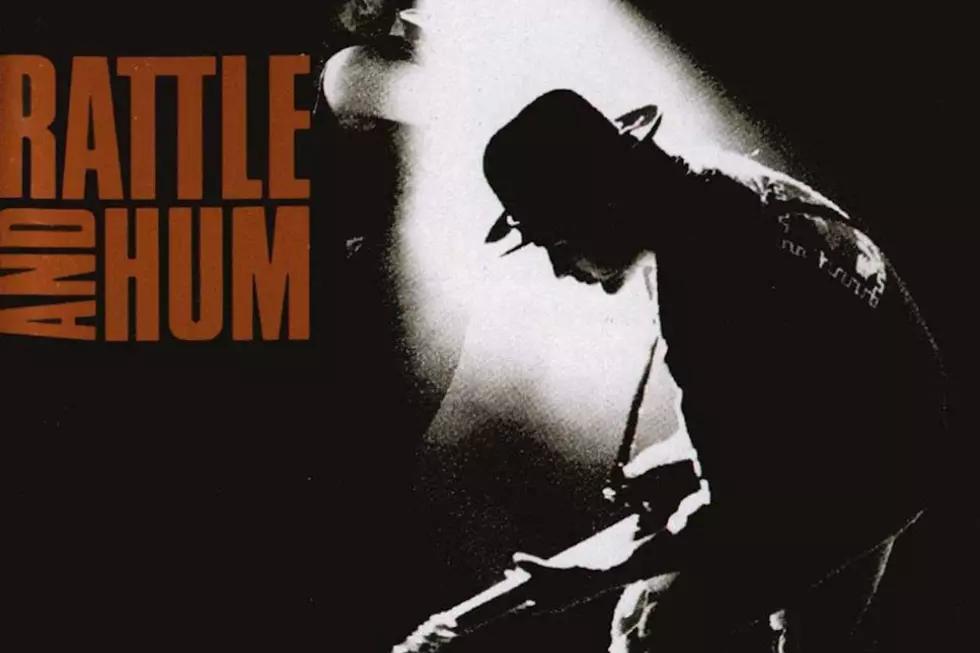
Revisiting U2’s Unfocused ‘How to Dismantle an Atomic Bomb’
Almost a year after U2 released How to Dismantle an Atomic Bomb on Nov. 22, 2004, Bono reflected on the quality of the record in the pages of Rolling Stone magazine. "It's the best collection of songs we've put together," he declared. "But as an album, the whole isn't greater than the sum of its parts, and it fucking annoys me."
No U2 fan should be surprised that "the best collection of songs" wasn't enough to please Bono and pals. Since the onset of their superstardom in the late '80s, the group had been obsessed with having to live up to the idea of being U2. While that struggle led to something as fresh and creative as Achtung Baby, it also resulted in the half-baked dance music experimentation of Pop and the sledgehammer irony of the record's accompanying tour.
With the new millennium, U2 had traded their golden arch for a heart-shaped stage and attempted to reclaim something resembling "classic U2." All That You Can't Leave Behind was heralded as a return to form, with a slew of hit singles in tow. For the first time in a while, the band seemed comfortable being themselves.
On the heels of that album and the Elevation Tour, U2 began crafting their 11th LP by returning to the primal energy of the music that first inspired the group: punk. The result was a song with the working title of "Full Metal Jacket," which eventually became "Vertigo." Lyrically, Bono started with his feelings about the death of his father ("Sometimes You Can't Make It on Your Own"), then expanded his view to the state of the world ("Love and Peace or Else") and the band's legacy ("City of Blinding Lights").
As U2 continued to work on music, they set their sights on something more varied than scorching punk rock. In the process of chasing those sounds, from the Who-like bombast of "All Because of You" to the romantic balladry of 'A Man and a Woman,' U2 enlisted six producers. The revolving door alternately featured Steve Lillywhite, Brian Eno, Daniel Lanois, Chris Thomas, Flood and Jacknife Lee, most of whom the band had collaborated with before.
Given how many cooks were in the kitchen, it's no wonder Bono complained that the 11 tracks on How to Dismantle an Atomic Bomb didn't build into something more explosive. Yet, as a collection of singles, the album was a commercial hit.
It certainly didn't hurt that a lightning-quick edit of "Vertigo" was featured on ubiquitous television ads tied to the latest iPod, circa the fall of 2004. In one of U2's most blatant stabs for commercial acceptance, the band even teamed with Apple to release a U2 edition iPod with the color scheme of their new album.
Watch U2 Perform 'Vertigo'
U2 took more than a few shots for their embrace of a corporation, but the gambit worked. "Vertigo" became a blockbuster single (and the name of the band's gargantuan 2005-06 tour) and How to Dismantle an Atomic Bomb was released to enormous sales, topping the charts in countries around the world – becoming one of the biggest-selling records of '04 and eventually moving more than 3 million copies.
The album was an even bigger critical success for the band, who received some of the best reviews of their career and found their album on hordes of "best albums of the year" lists. In addition, How to Dismantle an Atomic Bomb achieved the rare feat of winning all nine Grammy Awards for which it was nominated in 2005 and 2006, including Album of the Year.
Beyond big award wins and multi-platinum sales, U2 also made an impact on the 2008 U.S. presidential election. Then-Sen. Barack Obama chose the track "City of Blinding Lights" as the entrance theme for many of his campaign events, including his announcement to run for the office and his acceptance speech at the Democratic National Convention. In addition, U2 were invited to perform the song at Obama's inauguration concert.
Despite all the acclaim that surrounded How to Dismantle an Atomic Bomb, the album hasn't worn its success all that well in the intervening years. During the 2009-11 U2 360 tour, the band reliably performed only two songs from the record – "Vertigo" and "City of Blinding Lights."
In addition, U2's armload of Grammys seems more like a reward for a great career than acknowledgment of a particularly fantastic work. Is it any wonder that those golden gramophones came within the same year of U2 being inducted into the Rock and Roll Hall of Fame?
None of it ultimately stopped U2's ever-continuing search for all-out greatness, either. To quote one of their old hits, they still haven't found what they're looking for.
U2 Albums Ranked
More From Ultimate Classic Rock









